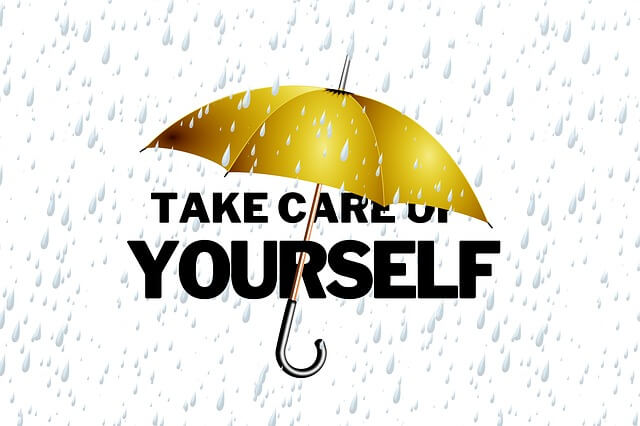20+ Journal Prompts for Recovery and Healing
Recovery and healing are transformative journeys that empower us to embrace our inner resilience and discover the strength within ourselves.
Whether recovering from physical challenges, emotional struggles, or any form of adversity, journaling serves as a powerful tool to navigate this path of growth and self-discovery.
In this blog post, we present a collection of journal prompts designed to guide you on your healing and recovery journey. Each prompt is carefully crafted to foster self-awareness, encourage reflection, and provide a safe space for emotional exploration.

These journal prompts offer an opportunity to embrace vulnerability, celebrate progress, and overcome obstacles as you embark on your path to recovery.
Embracing the power of the written word, you can chart your growth, recognize patterns, and nurture a deeper sense of self-compassion.
20+ Journal Prompts For Recovery & Healing
As you engage with these prompts, remember that there are no right or wrong answers – your words are an authentic expression of your unique experience.
1. Reflecting on Your Journey: Reflect on your journey so far in recovery. What progress have you made, and how have you grown as a person?
2. Overcoming Challenges: Write about the challenges you have faced during your recovery process and the strategies you have used to overcome them.
3. Defining Recovery: What does recovery mean to you? Describe your vision of a fulfilling and healthy life post-recovery.
4. Exploring Emotions: Explore the emotions you have experienced during your recovery journey. How have these emotions influenced your healing process?
5. Encouraging Your Future Self: Write a letter of encouragement to your future self, celebrating the strength and resilience you possess on this path to recovery.
6. The Power of Support: Describe the support system that surrounds you during your recovery. How have they positively impacted your healing journey?
7. Turning Setbacks into Growth: Reflect on any setbacks you have encountered and how you can turn them into opportunities for growth and learning.
8. Prioritizing Self-Care: Write about the self-care practices that have been most beneficial in promoting your physical, emotional, and mental well-being during recovery.
9. Navigating Triggers: Explore any triggers or patterns that have challenged your recovery progress. How can you develop healthy coping mechanisms to navigate them?
10. Celebrating Triumphs: Describe a moment of triumph or breakthrough in your recovery journey. How did it impact your outlook on healing and growth?
11. Gratitude for Change: Write a gratitude list for the positive changes that recovery has brought into your life.
12. Empowering Beliefs: Explore any negative self-beliefs that may hinder your progress. How can you replace them with empowering and affirming beliefs?
13. The Healing Power of Forgiveness: Describe the importance of forgiveness in your recovery journey. Reflect on any forgiveness you need to extend to others or yourself.
14. Pursuing Dreams and Aspirations: Write about your dreams and aspirations for the future. How does recovery empower you to pursue your goals?
15. Moments of Self-Discovery: Reflect on the moments of self-discovery you have experienced during recovery. How has this journey revealed aspects of yourself that you were previously unaware of?
16. Compassionate Letter to Your Past Self: Write a letter to your past self, offering compassion and understanding during challenging times.
17. Embracing Creativity for Healing: Describe the role of creativity in your recovery process. How can creative expression be a powerful tool for healing?
18. Joyful Activities for Balance: Write about the activities or hobbies that bring you joy and help you maintain a sense of balance during recovery.
19. Healing from Past Emotions and Trauma: Explore any unresolved emotions or trauma from the past that may still affect your healing process. How can you work towards healing and closure?
20. Community and Connection: Reflect on the moments of connection and support you have experienced with others on a similar recovery journey. How has this sense of community influenced your healing process?
21. Cultivating Courage and Determination: Write about the fears or doubts you have faced during recovery. How can you develop a sense of courage and determination to overcome them?
22. Embracing Self-Compassion: Describe a self-compassion practice that you can incorporate into your daily routine to promote healing and self-acceptance.
23. Surrender and Letting Go: Explore the concept of surrender and letting go in your recovery journey. How can releasing control bring peace and healing?
24. Gratitude for the Present Moment: Write about the role of gratitude in helping you stay grounded and appreciative of the present moment during your recovery.
25. Discovering Strengths: Reflect on the strengths and qualities that have emerged or grown stronger through your recovery process.
Remember that journaling is a safe space for self-exploration and healing. Use these prompts as tools to delve deeper into your recovery journey, nurturing self-awareness, and fostering personal growth.
Be kind to yourself throughout this process, and remember that healing is a journey, not a destination. Embrace each step with compassion and celebrate the progress you make along the way.
Frequently Asked Questions (FAQs):
Journaling provides a safe and introspective space to process emotions, set goals, and track progress, empowering you on your journey of healing.
Allow yourself to feel and express these emotions without judgment. Use journaling as a tool to explore and understand them, fostering healing and growth.
The frequency of journaling is flexible and based on your needs. Aim to make it a consistent practice, but listen to your intuition on how often to engage.
Absolutely. You have full control over your journaling experience. Feel free to modify, skip, or create your own prompts that resonate with you.
If you encounter writer’s block, start with simple prompts or write freely without any specific direction. Allow your thoughts to flow naturally.






